What the UN’s Sustainability Goals Mean for Travel
If undertaken consciously, travel can help to create more equitable communities, conserve delicate ecosystems, and promote clean energy. That’s why tourism is a major component of the United Nations’ Sustainable Development Goals. Here’s how the travel industry is rising to the challenge.
Shares
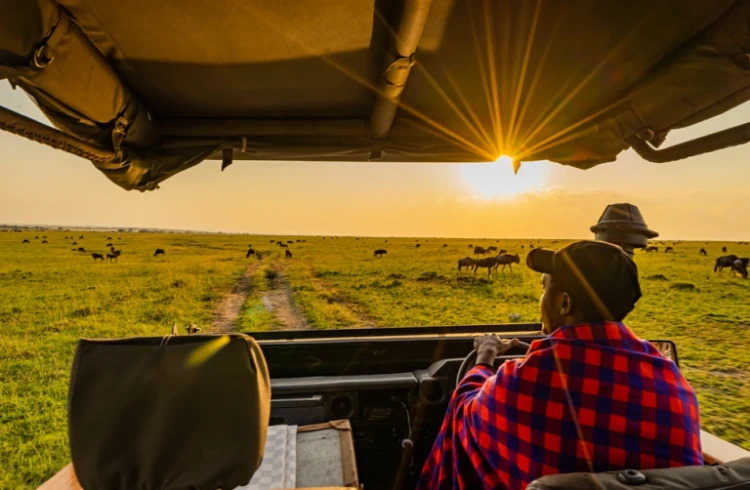 Photo © Emboo River / Brian Siambi
Photo © Emboo River / Brian Siambi
In 2000, as the world welcomed in the new millennium, the United Nations set a series of Millennium Development Goals to be achieved by 2015. These goals were groundbreaking – the first international consensus drafted with the intention of tackling global problems such as poverty and hunger, access to education, and environmental sustainability.
In September 2015, UNDP (the United Nations Development Programme) laid out another set of goals to be accomplished by 2030, including 17 Sustainable Development Goals (SDGs). One distinction that sets the 2030 iteration apart is the inclusion of the tourism industry in the plan to achieve the SDGs: clean water and sanitation (SDG #6), affordable and clean energy (SDG #7), sustainable cities and communities (SDG #11), responsible consumption and production (SDG #12), gender equality (SDG #5), economic growth (SDG #8), life below water (SDG #14), and life on land (SDG #15).
The vision behind the goals is that governments, along with the public and private sectors, can collaboratively tackle these universal problems.
- How do the Sustainable Development Goals translate to changes in tourism?
- How can travelers help work towards these goals?
How do the Sustainable Development Goals translate to changes in tourism?
While it’s one thing to put goals on paper, how are they put into practice and how do they translate into tangible change? From shifts in how we travel – slow travel, train travel, sustainable aviation fuels – to rethinking the restaurant, hospitality, and travel businesses, the tourism industry at large is abundant with innovators and changemakers leading the way. The impact is immense. In conducting research and reflecting on my own travels, I was humbled to come across so many examples of action-oriented tourism rooted in ethical, sustainable experiences.
Elimination of single-use plastics
From plastic bag bans to eliminating plastic straws, plastic is no stranger to the issue of environmental responsibility. Bangladesh was the first country to introduce a full ban on single-use plastics in 2002. Now, 80 countries, including Rwanda, Thailand, Kenya, Tanzania, and the Caribbean islands of Aruba and Dominica, have implemented a full or partial ban on single-use plastics. In late 2018, Peru banned single-use plastics in Machu Picchu to help preserve this iconic site.
What does this mean for travelers? Bring your reusable tote bag and a refillable water bottle on your travels, to start. Many hotels provide reusable water bottles for guests’ use, and some restaurants in places where the tap water is undrinkable offer filtered water instead of bottled water as an option.
Carbon footprint reduction
The travel industry’s carbon footprint is one of its biggest environmental challenges. Efforts to achieve carbon neutrality have sparked a movement to reconceptualize what it means to be sustainable. Though transport is one of the greatest contributors to carbon emissions, electric vehicles and other alternatives are becoming more prevalent, with companies like Nairobi-based electric vehicle company, Roam, popping up, as well as green options on transport apps like Uber.
Tourism companies are also beginning to switch to electric vehicles. Emboo River, a safari camp in Kenya’s Maasai Mara, for example, has taken their traditional Land Cruisers and updated their old engines with electric systems charged by solar power. This eliminates the carbon footprint from both the fuel and the electricity. An added bonus? Guests have the privilege of taking silent safaris through the grassy plains of the Maasai Mara while leaving no fuel trail behind.
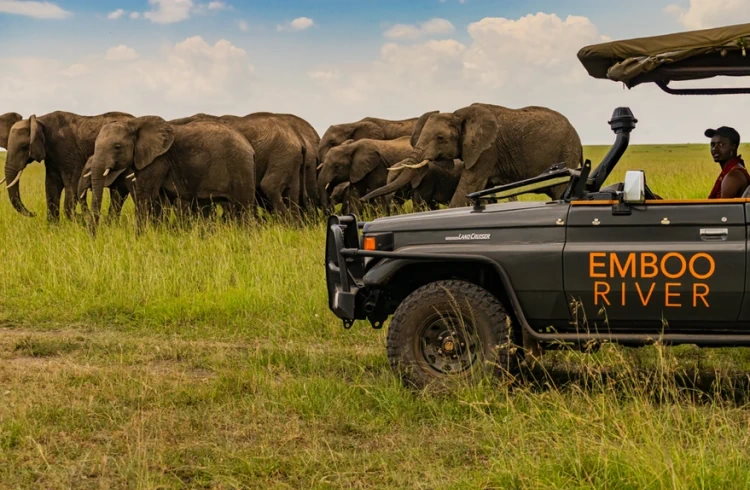
Emboo is East Africa’s first carbon-neutral camp. Beyond running off solar power and using electric safari vehicles, the team has taken measures to reduce their footprint in every way they can while increasing their positive impact on local communities and ecosystems. Natural cleaning and shower products, local plants to filter wastewater, a vertical, on-site garden, and converting food waste into biogas are just a few examples.
One of the most exciting evolutions in the global effort to reduce carbon emissions is the research being poured into sustainable aviation travel. United Airlines, for example, has pledged to become 100% green by 2050 without relying on traditional carbon offsets. As part of this effort, United signed an agreement to buy up to 52.5 million gals of Sustainable Aviation Fuel (SAF), produced from 100% sustainably sourced renewable waste (including cooking oil, waste oil, food scraps, paper, and textiles). While some types of SAF are more efficient than others, they all provide a significant reduction in carbon emissions in comparison to traditional jet fuels.
Renewable energy
Renewable energy sources such as solar and wind are key in expanding access to electricity and reducing carbon emissions. Alternative energy has grown at an annual rate of 15% since 2015. If exponential growth continues at this rate, renewables will comprise 45% of energy by 2030. The use of partial or full renewables is becoming an increasing standard in accommodation, households, and cooking worldwide.
Recently, a sustainability revolution has been rippling its way through Kenya. At the United Nations Climate Change Conference in 2021 (aka COP26), the Kenyan government committed to achieve sustainable tourism at large by 2030. Their goals include restricting vehicles in national parks and reserves to only those using non-fossil renewable energy and requiring hospitality and tourism facilities in Kenya to adopt renewable energy by 2030.
In reflecting on these changes, Valery Super, co-founder and CEO of Emboo River, noted, “We are excited by these recent initiatives by the Kenyan government… In order to reach the UN SDGs, action and coordination are needed by various actors including policy makers, civil society, businesses, and individuals.”
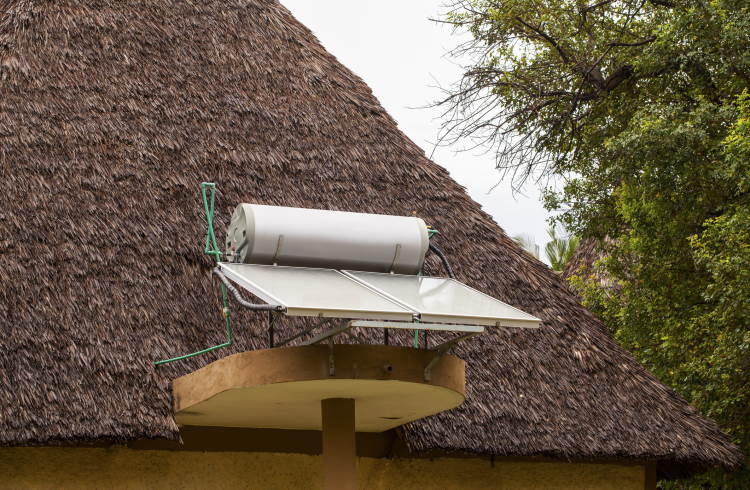
Sustainable communities and economic development
Sustainable tourism extends far beyond eco-friendly properties. True sustainability includes local communities as part of the plan, both from an environmental and economic development perspective.
In Rwanda, a country entrenched in conservation efforts, innovations in the tourism industry are in constant motion. One of the country’s newest lodges, UMVA, a space dedicated to adventure and community on the shores of Lake Muhazi, is at the forefront of this movement. Iwona Bisaga and Nick Hu, the masterminds behind the endeavor, bring expertise in renewable energy and the humanitarian sectors – and the level of accountability that’s necessary in advancing tourism in line with the 2030 UNDP goals.
From its earliest imaginings, UMVA has worked to tell a story about Rwanda that takes into account the local environment, people, and culture. The free-standing structures are made with local soil, the walls showcase the striking work of artisans from Rwanda and sub-Saharan Africa, and their community dining experience includes Rwandese dishes created with ingredients primarily grown on site.
“We’re supporting the new generation of responsible operators that hold sustainability as a key value,” Bisaga and Hu told me. “From the moment we broke ground and decided on rammed earth construction (30-40% less carbon emissions than traditional building techniques) to not using single use plastics, we always look for ways to reduce our footprint on the ecosystem.”
UMVA seeks to create an inclusive environment that invests in the local ecosystems and community. The construction of the property provided more than 600 jobs, of which more than 45% were carried out by women. UMVA also maintained the natural vegetation of Muhazi and planted an additional 2,000 new local species. Through their future-oriented model, UMVA hopes to make a long-term contribution to the economic growth and sustainable communities within Rwanda. “We love working with aspiring leaders and entrepreneurs. We offer an environment where our team members can get exposure to different parts of the business and its operations and can develop their leadership skills as they grow with us.”
Protection of environments and species
Efforts to protect biodiversity on land and in the sea are not just at the core of numerous experiential tourism offerings, they’re often closely intertwined. In recent years, research by marine biologists at the Great Barrier Reef to understand reef regeneration and coral spawning has been linked to sustainable underwater adventures for tourists. One example is Reef Magic, an eco-certified company operating diving and snorkeling from a pontoon on the reef, where marine biologists simultaneously are studying coral health. Similarly, infrastructure that’s crucial to protecting the environment and livelihoods of mountain gorillas in the rainforests of Central Africa relies on tourist dollars generated from visitors trekking with the primates (such as at Virunga National Park in the Democratic Republic of the Congo).
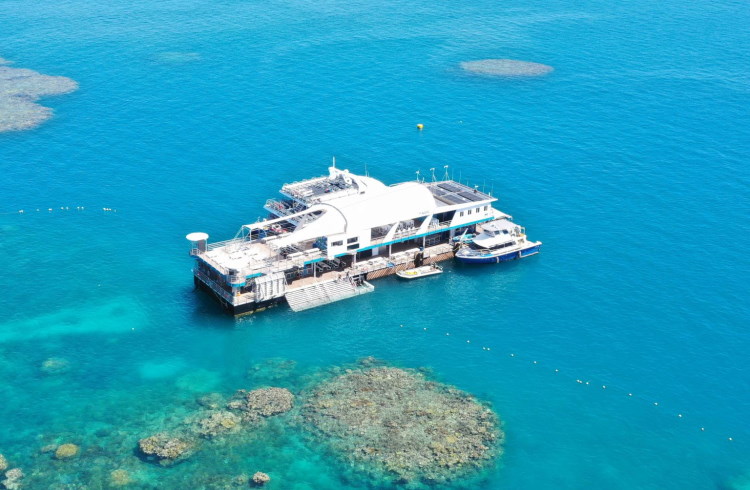
At the COP15 Biodiversity Summit in Montreal in December 2022, around 190 countries approved a sweeping United Nations agreement to protect 30% of the planet’s land and oceans by 2030. Organizations like the African Wildlife Foundation, which undertakes imperative work to protect natural environments and promote anti-poaching efforts, engaged in discussions surrounding best practices in conservation.
The scope of efforts to protect wildlife and environments can be further be seen through organizations like African Parks Network (APN), which works to rehabilitate devastated national parks and their resident wildlife. In November 2021, APN helped facilitate the relocation of 30 white rhinos to Akagera Park in Rwanda to create a protected habitat for this endangered species.
Gender equality
Despite playing a major role in tourism, women are often underpaid, overworked, and excluded from leadership positions. Gender equity is a vital component of the 2030 goals and the tourism sector can play a role in achieving it. There are many miles still to travel for this equitable future to be a reality, but significant strides have been made.
In November 2021, United Nations World Tourism Organization (UNWTO) in Malaysia hosted the first conference on women’s empowerment in tourism in the Asia Pacific region. While women comprise 53% of the tourism workforce in Asia, they primarily hold lower-paid positions. The conference set the stage for shifting gender norms in tourism in the region.
In Zimbabwe, Akashinga is Africa’s only all-women anti-poaching unit. This female force is revolutionizing the way wildlife is protected against poachers with minimal conflict. The impact of Akashinga isn’t just felt in anti-poaching efforts – it’s also resulted in a team of empowered women who can buy property, send their children to school, continue their education, and provide for their families.

Just last month, Emboo hosted the first Women’s Empowerment Meeting for the tourism sector. Super commented: “The tourism industry in Kenya – and in many other places around the world – is male dominated. At Emboo River we are changing this by having many trailblazing women in the team… challenging stereotypes and setting an example for other women. By joining forces, sharing experiences, speaking up, and taking action we are paving the way for ourselves and other women in our community.”
How can travelers help work towards these goals?
Awareness is the first step. Understand where your money is going. Are you staying at hotels and eating at restaurants that support local farmers, chefs, and other community members? Is your wildlife experience ethical and does it contribute to the conservation of vulnerable species and local ecosystems? Does the company you choose to trek with support fair wages and working conditions for local workforce?
Sometimes, these questions can be tricky to answer from afar and it’s best to revert to the experts. Over the past few years, a number of travel companies have popped up that are dedicated to curating trips that are conscious of local communities and environments.
Switzerland-based travel company Fair Voyage is a B Corp-certified entity that connects travelers to sustainable experiences and local guides. Fair’s trips aim to benefit local communities and minimize one’s footprint. Viatu, a relative newcomer to the travel space, uses tech to design high-impact, low-footprint travel experiences across the African continent and make sustainable travel accessible for everyone. Their motto? “Travel with a purpose.”
Travel doesn’t have to be the cause of a bigger footprint on the globe. If undertaken consciously and in collaboration with mindful, goal-oriented entities, travel can actually contribute to global development, equitable communities, and the conservation of delicate ecosystems and species. So do as Viatu suggests and travel with a purpose.
Related articles
Simple and flexible travel insurance
You can buy at home or while traveling, and claim online from anywhere in the world. With 150+ adventure activities covered and 24/7 emergency assistance.
Get a quote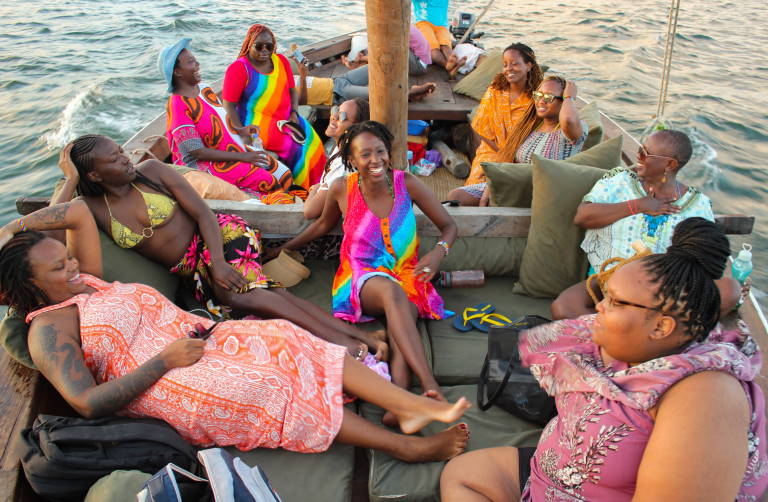
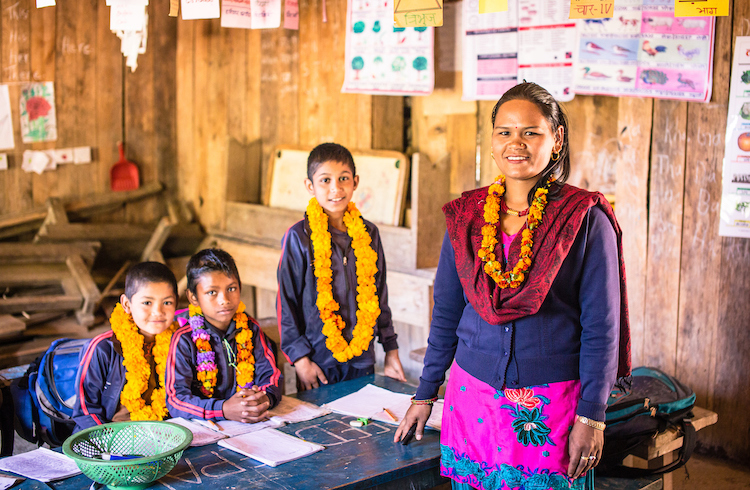
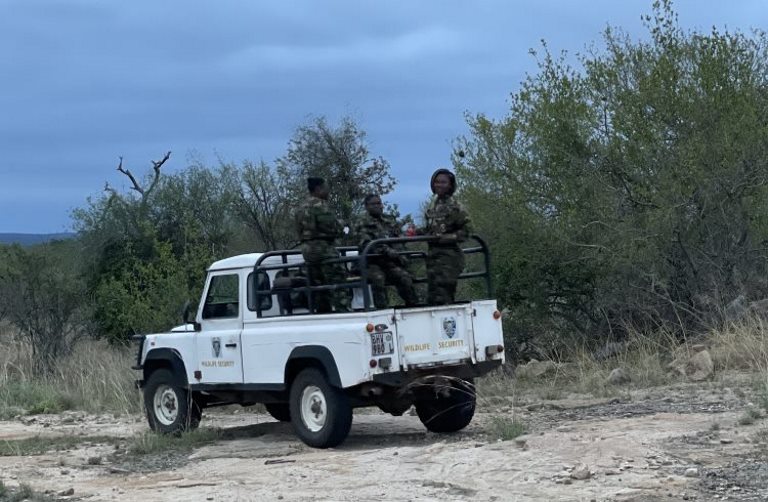
No Comments